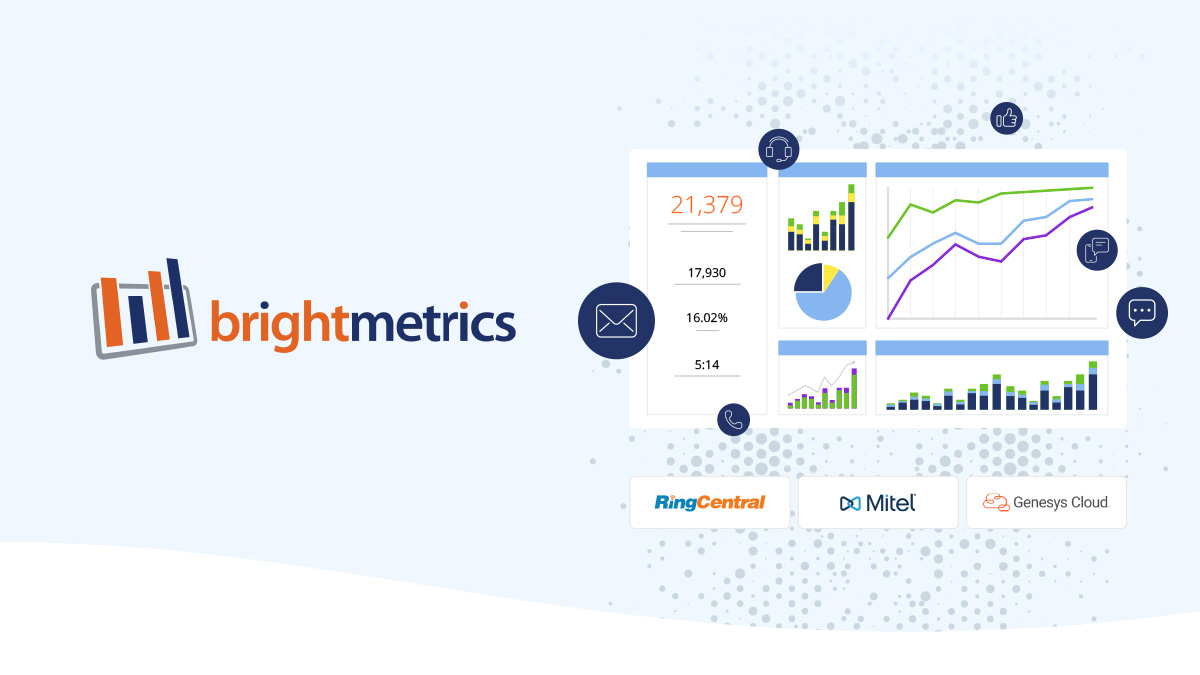In the automotive industry, contact centers are the go-to for customer support in vehicle-related inquiries. To ensure top-tier service, team leads must gauge performance. Tracking pertinent contact center KPIs with cutting-edge software is the key. But which metrics should they focus on? Explore our top metrics for automotive contact centers to track, and see how powerful analytics tools enhance business intelligence and speed up customer engagement.
Average After Call Work Time
Contact center agents often juggle multiple tasks once they conclude an inbound or outbound call with a customer. These post-call responsibilities encompass critical activities like sharing vital information with team leads and ensuring that customer relationship management (CRM) systems are up-to-date.
Average After-Call Work, commonly known as ACW, is a vital metric that quantifies the time, typically measured in seconds, agents spend on these tasks following a call’s conclusion. When the ACW time is notably high, it signals that agents may be dedicating excessive time to post-call work, potentially at the expense of addressing more calls. In such instances, team leads may need to provide additional training to help agents streamline their post-call processes.
A practical strategy to minimize high ACW times in your automotive contact center is to encourage agents to multitask by tackling administrative duties while engaged in conversations with customers. For instance, an agent can seamlessly update a CRM system while interacting with a customer on the phone, eliminating the need for extensive post-call follow-up. This not only enhances efficiency but also ensures that customer interactions are more seamless and productive.
Service Level
Service level is another key contact center KPI in the automotive sector. It calculates whether agents meet the service level agreements (SLAs) you have with customers. Your SLA might stipulate you have to answer a certain percentage of calls on time during a specific period or resolve a predetermined number of customer queries. This metric ensures you fulfill your SLAs with customers.
Each company has different SLA responsibilities. However, the service level KPI provides insights into the customer experience and helps you identify the reasons your company isn’t meeting its SLAs so you can take swift action. For example, if you are not resolving a certain number of queries on time, agents might require additional training from team leads so they can serve customers more effectively.
While the service level KPI holds relevance across sectors, it assumes paramount importance in the automotive industry. This is because automotive companies must foster trust in their customers, particularly when making significant vehicle purchases or evaluating warranty policies. Achieving and maintaining high service levels ensures customers embark on these important decisions with the confidence that their needs and expectations will be met.

Outbound Call Count
Outbound Call Count is a crucial metric that measures the quantity of outbound calls started by agents within a defined timeframe. For instance, you might assess the number of outbound calls made by agents over the past 30 days or within the last six months.
This metric’s importance in automotive call centers lies in the industry’s unique requirements and demands. Automotive companies often rely on proactive outreach to establish and maintain customer relationships. Outbound calls ensure that customer inquiries are addressed promptly and that relevant products or services are offered in a timely manner. Therefore, effectively measuring and managing the Outbound Call Count is pivotal to meeting customer needs and achieving business objectives within the dynamic and competitive automotive sector.
Customer Satisfaction
Customer Satisfaction is an especially important call center KPI within the automotive industry, serving as a vital barometer of how happy customers are with the service delivered by an agent. Its significance is amplified in an industry where positive word of mouth carries substantial weight—auto dealerships and related businesses thrive on glowing referrals from satisfied customers.
A strong Customer Satisfaction rating shows agents who not only excel at their roles but also have the resources to handle calls promptly and effectively. Conversely, a lower Customer Satisfaction score may raise concerns about insufficient staffing or agents requiring further training to enhance their telephone communication skills.
Various methods exist to calculate Customer Satisfaction rates, such as soliciting feedback through customer surveys and rating scores. In many automotive companies, post-call automated text messages are delivered to customers, inviting them to rate the service received from an agent on a scale of 1 to 10. The resulting scores can then be averaged to identify agents who consistently provide the highest levels of customer service.
Alternatively, you can harness the power of call center analytics software, which streamlines these calculations for you. Such software presents Customer Satisfaction rate data in intuitive dashboards, comprehensive reports, and other visual representations. This not only simplifies the process but also empowers you to discern pertinent patterns and trends in call interactions, enabling proactive enhancements to customer service. By leveraging these insights, automotive call centers can not only ensure customer satisfaction but also foster loyalty and advocacy among their clientele.
Contact Center KPI Reporting – Simplified
In the competitive landscape of the automotive industry, maintaining excellence in customer service is not merely a desire; it’s a necessity. Positive experiences shared by satisfied customers can significantly impact your brand’s reputation and customer loyalty. The metrics discussed above help ensure that your contact center consistently delivers top-tier service, enhancing the likelihood of glowing customer referrals and sustained business growth.
While the metrics mentioned in this article are pivotal, it’s essential to remain adaptable. Depending on your specific goals and challenges, explore additional KPIs that can provide deeper performance insights. The key is to remain agile and responsive, using data-driven decision-making to steer your automotive call center towards ever-higher levels of efficiency, customer satisfaction, and success.
Brightmetrics simplifies the tracking of call center KPIs through its user-friendly analytic dashboards and reports. Team leads can effortlessly monitor these metrics using robust data visualizations, gaining valuable insights into daily performance. With its high-level dashboards and comprehensive call summary reports, Brightmetrics enhances decision-making, making it an essential tool for companies in the automotive industry.
Learn more about improving your call center customer experience with Brightmetrics.




